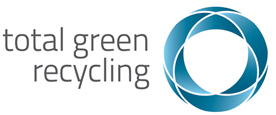Australian Red Cross is adding to its support of refugees through an innovative partnership that provides people with digital literacy skills as they start new lives in Australia.
By increasing opportunities to participate fully and equally in the digital world, the partnership, between Red Cross, the State Library of Western Australia and Total Green Recycling, will provide three face-to-face sessions at the library as well as refurbished laptops and smart phones from Total Green Recycling. Red Cross volunteers will deliver the sessions in Tigrinya, Arabic and Chin.
- Refugees receiving laptops
- Refugees receiving laptops
- Refugees receiving laptops
- Refugees receiving laptops
- Refugees receiving laptops
- Refugees receiving laptops
- Refugees receiving laptops
- Refugees receiving laptops
- Refugees receiving laptops
- Refugees receiving laptops
- Refugees receiving laptops
This support is part of the Australian Government-funded Humanitarian Settlement Program, a national program that helps refugees to establish themselves when they first arrive in Australia, delivered in Western Australia by the Red Cross.
“This year’s Refugee Week theme ‘The Year of Welcome’ is a particularly apt sentiment in the lead up to this new venture,” said Jasmine Shah, Red Cross Orientation Officer, Humanitarian Settlement Program. “The COVID-19 pandemic has amplified the vital role that digital technology and the internet play in supporting refugees to settle here. This includes maintaining important connections to family and friends overseas, connecting with local opportunities and resources, developing broader social networks and skills, and helping to learn the language and more about Australian culture.
“The COVID-19 pandemic has amplified the vital role that digital technology and the internet play in supporting refugees to settle here.”
A recent Red Cross survey of 135 recently arrived refugees living in Perth revealed just 36 percent had access to a laptop or computer at home. Those who did often reported sharing one device between multiple family members, including school-aged children.
State Library of Western Australia CEO and State Librarian Margaret Allen said reducing the digital divide was an important goal for the library, as many day-to-day transactions are now conducted online, and is a critical factor in increasing social and economic inclusion in Australia.
“The sessions will support refugees to access local services such as Medicare, schools and other community services,” Ms Allen said. “This in turn will enable families to improve their English, link with job and volunteering opportunities and more easily settle into their new lives.”
Co-director of Total Green Recycling Michael Coghill said the organisation is committed to supporting vulnerable groups through refurbishing and reusing IT electronics such as laptops and mobile phones, which also has the added bonus of reducing the amount of waste in landfill.
“Refurbishing and reusing these items can be up to 25 times better for the environment than recycling and 125 times better than landfilling when considering the emissions avoided in the mining, recycling and manufacturing of new products,” he said.
The three digital literacy sessions will run at the State Library, 25 Francis St, Perth, from Monday 22 to Wednesday 24 June, with the first session in Tigrinya on Monday at 10am-12pm. Red Cross is looking for more volunteers to play a part in creating a friendly and welcoming Australia.
To register, visit redcross.org.au/about/how-we-help/migration-support/humanitarian-settlement-program.











